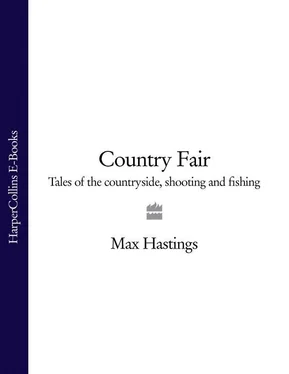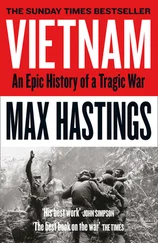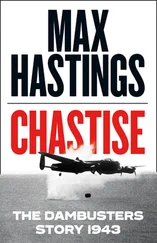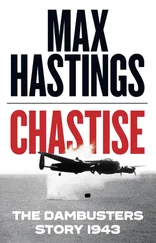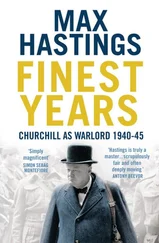N OT LONG AGO, I watched a young girl cast a fly on a Scottish salmon river. Her line fell in a bundle amid the stream, and straightened only five, ten seconds after landing – which of course meant that it was unlikely to impress a fish for half the time it was crossing potentially active water. My heart bled for her. Yet I need not have worried. She caught a fish. This turned my mind to a general question. We know that a good dry fly trout fisherman will always catch more than a bad one. Unless one is plying a river in the mayfly season, or addressing oneself to tame fish lately released, the fine caster prevails over the coarse one, because presentation is all.
Yet different rules apply to salmon fishing. Again and again, we see novices and indifferent fishers achieving startling success. I have been a beneficiary myself. Many years ago in Sutherland, I remember looks of pained disgust on the faces of others in the party, who were enamoured neither of my company nor of my casting, as they saw me land an indecent number of salmon. For sentimental reasons I was fishing with a huge old greenheart Hardy of my father’s. Returning with a fish one night, I heard a fellow-guest mutter disgustedly: ‘And with that rod, too.’ In short, I was lucky.
Luck can carry an incompetent fisher a long way on a smallish salmon river, with good water. A long cast is seldom necessary. Most beats contain pools dominated by rushes of fast water, which will rectify a poor cast very quickly, whipping the fly round into touch. Maunsell, author of one of my favourite sporting books, The Fisherman’s Vade Mecum , urges that one should never retrieve a bad cast, but leave it to complete its course. That cast can never be exactly repeated, he observes. Every now and again, however unjustly, a tangle of line will catch a fish, because some whim of the water will advance the fly in a tempting fashion. I follow Maunsell’s advice religiously, and never try to recover a poor line.
On a big river a better caster will usually catch more salmon, because he or she will cover more taking places. On the Tay not long ago, in a nasty wind, telepathically I knew exactly what my boatman was thinking: ‘Unless that big bugger can throw a better line than this, he won’t catch many fish here.’ He was right. I landed a grilse which took in streamy water directly behind the boat, but my attempts to cover a distance remained unconvincing. The salmon thought so, too. One is sometimes rescued by a wind, which can flatter casting outrageously. But it is a wry law of fishing that most winds blow the wrong way. It is dispiriting to see flies whipped round behind the line, and not infrequently knotted as well. Those are the moments when I hate suffering under a gillie’s eye. Alone, I can sometimes sort myself out, and make the best of a bad blow. With sceptical eyes present, however, I can never do so. Worst of all in these circumstances, the gillie finds an excuse to take the rod himself for a moment, and flicks the fly effortlessly across the flood as if that accursed zephyr did not exist. Those are the times when I am tempted to take up bowls.
At low water, the quality salmon fisherman comes into his own. The duffer is confounded. When the flow dwindles, the river shrinks to expose acres of rocks and pebbles on the bed, the man and woman who know what they are doing can achieve amazing results, while the rest of us are put in our places. It is an object lesson to watch a really gifted caster place a fly, and move a fish, when we lesser mortals despair of stirring the surface, save to drive salmon into flight. I fished the Naver for many years, sometimes in conditions verging on hopeless. A party fishing the next beat from us never seemed to lack something on the account. ‘The Farquharsons are the best fishers on the river,’ our gillie observed approvingly, refraining from comment upon our own doings. Likewise, I met an exceptionally skilful friend fishing a neighbouring beat of the Naver during a boiling, arid July when our own party had despaired. I found that he had taken two salmon out of a mere puddle of a pool at 6 o’clock that morning. I too was fishing at 6 a.m., but without success.
I recently suggested to Angus, a notably skilful gillie, that in all conditions and all rivers, over a period a good fisher might take 35 per cent more fish than a bad one, casting for the same number of hours. Angus thought that was about right. Contrast this with trout fishing, where a really poor caster is likely to catch nothing at all except maybe in poor light on an evening rise. That guesstimate about salmon fishing also takes account of the vagaries of playing fish which one has been fortunate enough to hook. Of course, someone who instinctively does the right things is more likely to land his catch than one who lets the line go slack, drops his rod point or whatever. But even the finest fishermen lose their share of fish, especially grilse, when these are taking short.
There seems no correlation between the quality of the man or woman behind the rod and the manner in which fish get hooked, and stay that way – with smaller fish anyway. As many gillies will assert that a salmon has got off because it was played too soft, as played too hard. Unless the fisher makes a fundamental error, once again luck seems the principal influence upon the outcome of the contest, though unsurprisingly the bigger the fish, the more likely is a bungler to mess up the landing of it.
A further interesting twist to the argument concerns the matter of morning or afternoon fishing. A gillie whom I respect said the other day: ‘Three-quarters of fish are taken in the morning. If the truth be known, you’re wasting your time casting a fly between one and six.’ Angus said that he himself, when he fishes, only goes out between 6 and 9 a.m. As he catches seventy salmon a year to his rod, which is a lot in Britain these days, I found myself brooding a good deal about what he said.
My gamebook represents the most efficient aspect of my sporting activities, sustained with morbid precision since I was nine. I have been looking back through it, to see how far Angus’s opinion seems justified by my own experience. Here are rough tallies of some British salmon-fishing expeditions over the past fifteen years, from which blanks for obvious reasons are excluded: Tweed five fish a.m., five p.m.; Helmsdale six fish a.m.; Helmsdale three a.m., one p.m.; Helmsdale two a.m., three p.m.; Tweed four a.m., two p.m.; Naver five a.m., two p.m.; Naver seven a.m., four p.m.; Laxford six a.m., two p.m.; Naver six a.m., one p.m.; Laxford three a.m., three p.m.; Naver seven a.m., four p.m.
Examining the afternoon totals more carefully, two-thirds of those salmon were caught after 6 p.m., more often than not because earlier conditions were too bright for convincing fishing. Angus’s views about the merits of taking a doze on the bank after lunch start to sound plausible. It seemed to matter much less on Tweed than on the northern rivers whether one was fishing morning or afternoon. I guess – and as usual with all matters pertaining to salmon fishing, here I am simply tossing out a few ideas to have them shot down by readers from their own experience – this reflects the fact that I fish Tweed during the short late autumn days, while I have usually visited Sutherland rivers in July or August.
I like fishing alone, early on summer mornings, if I know a river well enough to find my way about. There is a special thrill about hooking and landing a salmon without assistance, in playing out a little sporting drama amid the lonely majesty of the surrounding hills. I know some houses which discourage guests from this practice on the grounds that it is anti-social, and upsets gillies who start at 9 a.m. My attitude, however, is that we are there to catch fish if we can. Left to my own devices, all meals including breakfast would be eaten on the river between casts.
Читать дальше
